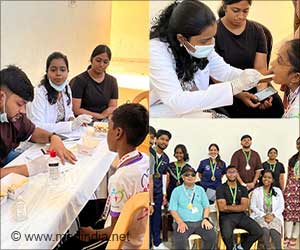
B cells, which produce proteins called antibodies, are one type of immune cell involved in GVHD. In a paper published in the journal, Blood, a team from the University of North Carolina's Lineberger Comprehensive Cancer Center, shows in the laboratory that B cells from patients with chronic GVHD are much more active than cells from patients without the disease. The team also outlines the cell signaling pathways that contribute to this increased activity – identifying a promising target for developing new therapies for the diseases. Jessica Allen, PhD, the paper's first author, says "We found that B cells from patients with active chronic GVHD were in a heightened metabolic state and resist programmed cell death."
Senior author, Stefanie Sarantopoulos, MD, PhD, assistant professor in the division of hematology/oncology and the departments of microbiology and immunology at the UNC School of Medicine, adds, "Steroids are currently our only standard treatment for chonic GVHD and they are often not effective. This study adds to our previously published work because it implicates the TNF family member protein called BAFF in the 'revved up' B-cell signaling we found in our patients. We hope to develop targeted therapeutic agents, like anti-BAFF agents or small molecule inhibitors of serine/ threonine kinases, for treatment of our chronic GVHD patients."
Source-Eurekalert









